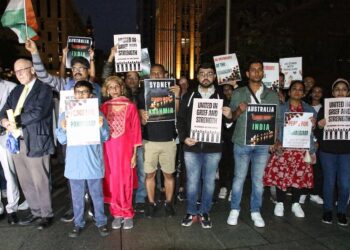Singapore has executed a 46-year-old Indian-origin drug trafficker, Tangaraju Suppiah, despite pleas for clemency from his family, human rights activists, and the United Nations. Tangaraju was hanged at dawn in Changi Prison after his 11th-hour appeal was rejected by a court.
He was convicted in October 2018 by a High Court judge of a capital charge of abetting an accomplice by conspiring to traffic cannabis, which was an offence under the Misuse of Drugs Act. Tangaraju, a Singaporean of Indian origin, was detained in 2014 for drug consumption and failure to report for a drug test.
Tangaraju’s sister Leelavathy Suppiah confirmed that the family had received a death certificate. The statement by the Singapore Prison Service confirmed that Tangaraju “had his capital sentence carried out today at Changi Prison Complex.”
Tangaraju’s case had drawn support from British billionaire Richard Branson and the UN High Commissioner for Human Rights, Ravina Shamdasani, who urged the Singapore government to reconsider Tangaraju’s execution and take steps to respect the right to life. Branson claimed in a blog post that Tangaraju’s conviction did not meet standards and that “Singapore may be about to kill an innocent man”. This was Singapore’s first execution in six months.
On Tuesday, the Ministry of Home Affairs (MHA) of Singapore stated that Richard Branson’s opinions about a Singaporean on death row indicated “disrespect” towards the country’s criminal justice system and judges.
The following day, Kirsten Han, an anti-death penalty activist, tweeted that Tangaraju Suppiah was executed by hanging at Changi Prison, and his family was provided with a death certificate. Han stated that Tangaraju’s family had many unanswered questions about his case and the evidence against him and that the experience had been traumatic for them.
The EU, along with the diplomatic missions of EU member states, Norway and Switzerland in Singapore, jointly released a statement on Monday, calling on the authorities to stop Tangaraju’s execution and change his sentence to a non-capital punishment.
In a Facebook post last Thursday, Australian MP Graham Perrett stated that he was “concerned that the planned execution of Tangaraju violates international law standards,” according to Channel News Asia.
According to a report, a Singaporean court rejected Tangaraju Suppiah’s request to review his case and halt his execution on Tuesday. In a 15-page ruling, Justice Chong stated that Tangaraju had not demonstrated a valid reason for the court to re-examine his case.
Tangaraju was sentenced to death after failing to satisfy any of the conditions that would have spared him from the death sentence. He appealed his conviction and sentence, but it was dismissed in August 2019, with the court concluding that he had conspired to traffic drugs and used a phone to communicate with his accomplice, Mogan Valo.
Tangaraju filed a criminal motion in November 2022 seeking permission to apply for a review of the appellate decision, which was also dismissed by the court in February 2023. In his final attempt, Tangaraju, who represented himself, claimed that the prosecution had not proved beyond a reasonable doubt that he and Mogan had conspired to traffic 1017.9g of cannabis.
Justice Chong, on the other hand, stated that during the trial, Tangaraju did not argue that he and Mogan had conspired to traffic an amount lower than the capital punishment threshold or any lesser amount. According to the report, Justice Chong stated that Tangaraju Suppiah was attempting to introduce an entirely new argument in his case.
On Saturday, the Central Narcotics Bureau (CNB) announced that Tangaraju’s plea for clemency to President Halimah Yacob was unsuccessful. The CNB stated that capital punishment is reserved for “the most serious offences,” such as the trafficking of large amounts of drugs that cause significant harm, not just to individual drug users but also to their families and society as a whole.
The bureau added that capital punishment is a component of Singapore’s comprehensive strategy to prevent harm, which targets both the supply and demand for drugs.











